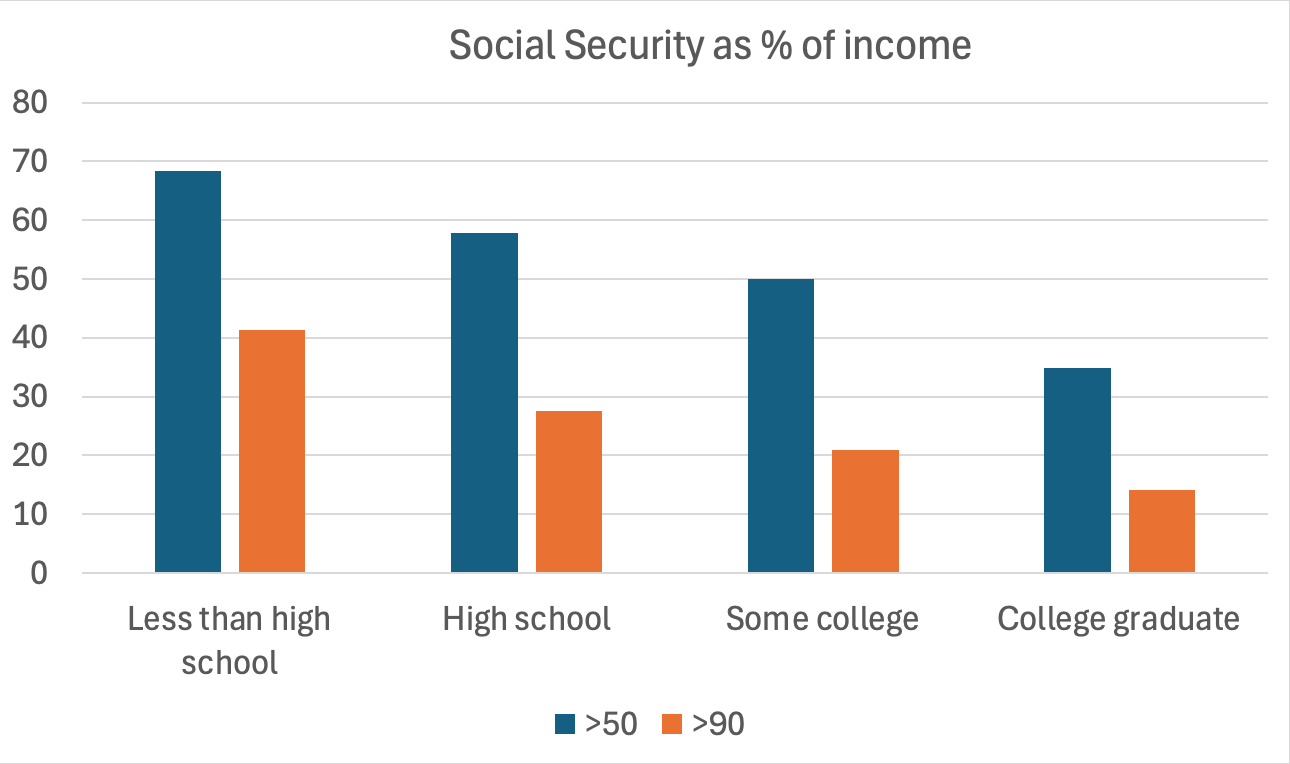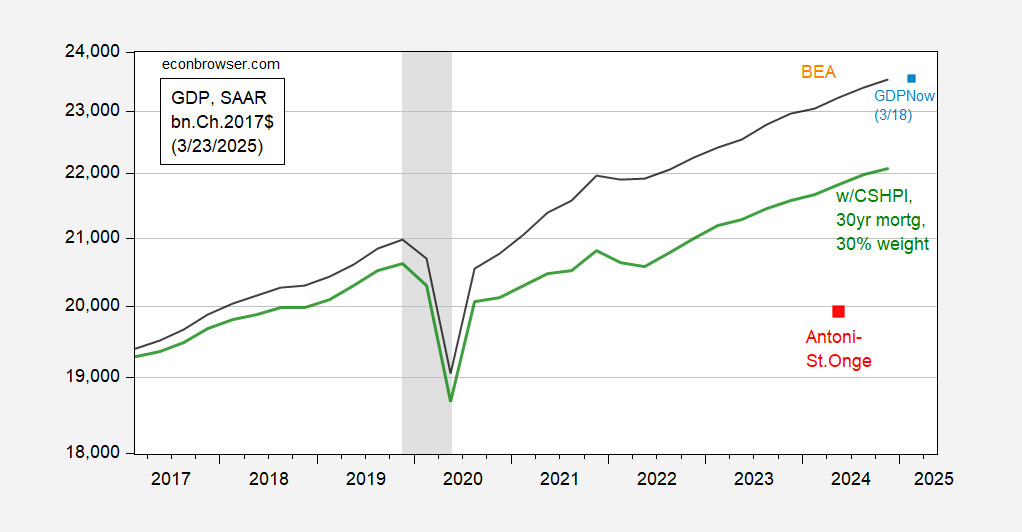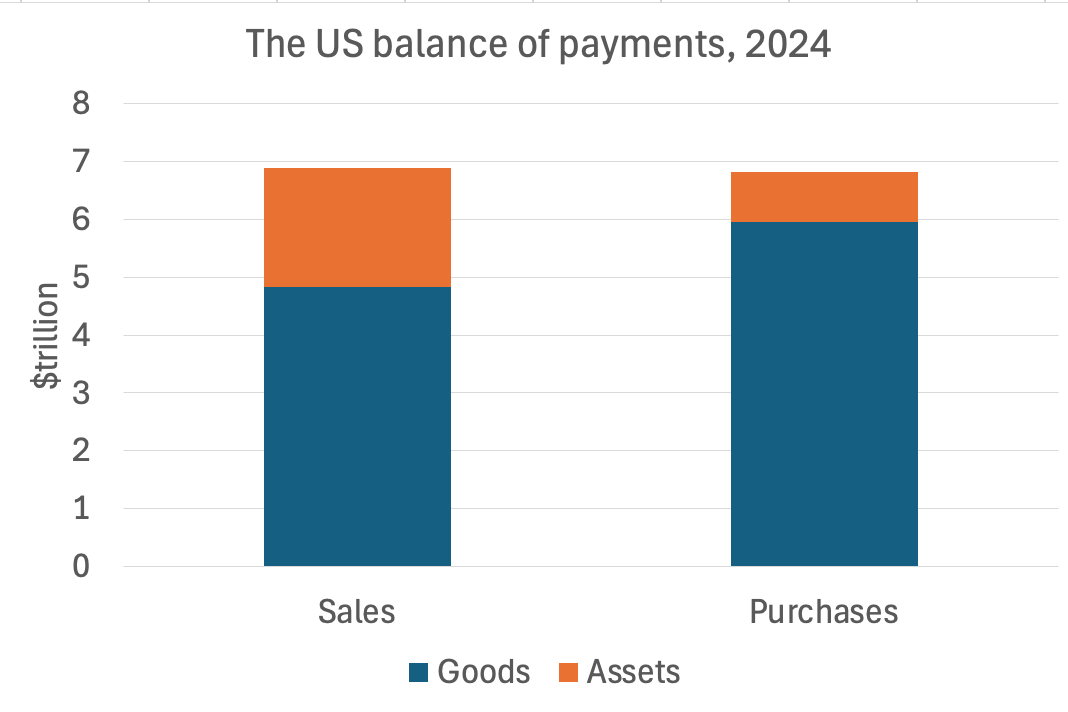
2981. China’s Trade Surpluses are Not a Source of Strength
John Phelan discusses how China's trade surpluses, while seemingly beneficial, have historically led to negative consequences for the country and its citizens.
your daily dose of economic commentary

John Phelan discusses how China's trade surpluses, while seemingly beneficial, have historically led to negative consequences for the country and its citizens.

The post discusses a new paper on difference-in-differences methodology, emphasizing a forward-engineering approach to causal inference and addressing various methodological challenges.
A disagreement is presented regarding the relationship between imports and exports, arguing that exports are not necessarily required for a country to benefit from imports.

Alina Selyukh discusses how inflation and tariffs impact shopping habits and budgeting, inviting readers to share their experiences.

An argument that India seeks to benefit from increased manufacturing opportunities due to U.S. tariffs on Chinese goods, positioning itself as an alternative for businesses.
Alex Tabarrok discusses the implications of a potential lab leak origin for SARS-CoV-2, advocating for improved biosafety regulations and international oversight to prevent future pandemics.

Bill McBride discusses the impact of policy changes on the housing market outlook for 2025, focusing on inventory levels and economic factors affecting sales.

Paul Krugman discusses the disconnect between working-class voters' support for Trump and the threats to Social Security posed by his administration's policies.

The post examines the prevalence of scam texts about unpaid tolls, explaining how scammers exploit human behavior and economic principles to target potential victims effectively.

Bill McBride discusses the recent increase in active single-family housing inventory, highlighting both week-over-week and year-over-year changes.

Scott Sumner discusses Valerie A. Ramey's research on the limited effectiveness of lump sum transfer payments in stimulating the macroeconomy, emphasizing monetary policy's offsetting role.

An argument that specialization in work can contribute to burnout, highlighting the disconnect between workers and their job's purpose as a significant factor.

Menzie Chinn analyzes EJ Antoni's recession claims and critiques his economic indicators and methodology while predicting a potential end to the recession call.

The post discusses the life and legacy of Max Frankel, highlighting his role as executive editor of The New York Times and his impact on journalism.

David Henderson discusses various readings, including insights on George Washington's entrepreneurship and critiques of pandemic lockdowns affecting societal behavior.

Pierre Lemieux reviews Anthony de Jasay's book, discussing its themes of justice, property, and the relationship between liberty and state authority.

The post discusses various topics including Social Security, Trump's policies, and corruption in San Francisco, highlighting the implications for governance and public services.

Scott Cunningham discusses teaching causal inference, focusing on difference-in-differences and the impact of weighting on treatment effect estimates.

Paul Krugman discusses the historical context of trade deficits and their implications, referencing David Hume's ideas and current economic debates in the U.S.
Proposals for a "Mar-a-Lago Accord" aim to depreciate the dollar to improve the trade balance, but face significant challenges and contradictions regarding US interest rates and dollar dominance.